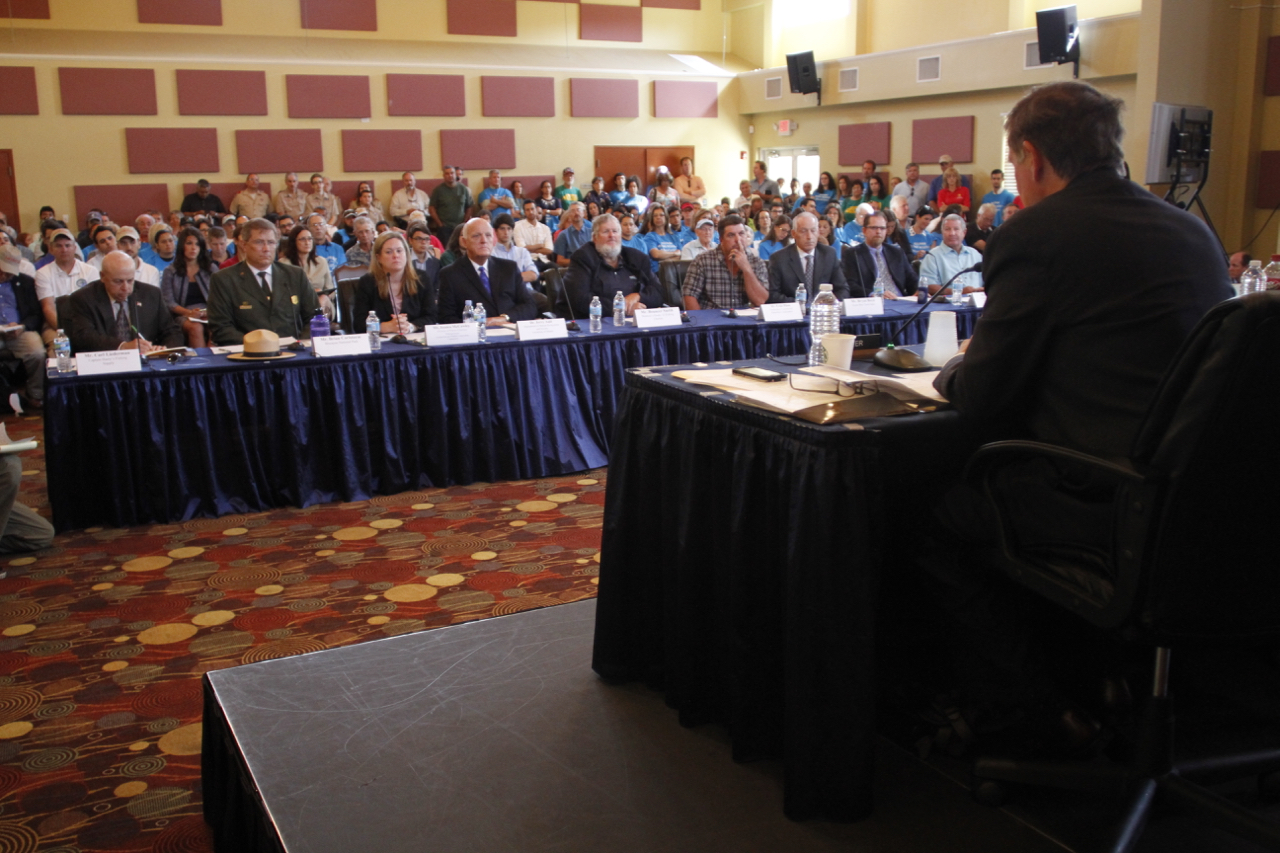August 10, 2015
By Florida Sportsman
By Bill Kearney
 Invited witnesses testify in front of Natural Resources and the House.
Invited witnesses testify in front of Natural Resources and the House.
In June, Biscayne National Park announced plans to created an aquatic preserve, closing 10,000 acres, or 6% of the park (21% of the park's reef environment) to fishing. On Monday, August 3rd, the House Committee on Natural Resources and the House Small Business Committee led a hearing in Homestead to discuss concerns over the pending closure. Key figures in support of the closure included Miami charter boat captain Bouncer Smith, and Dr. Jerry Ault of the Bonefish & Tarpon Trust and the department of Marine Biology and Fisheries at the University of Miami. Smith argued that after watching the deterioration of the recreational fishery in South Florida over the past 50 years, he fears for his business, and believes that a reserve would allow big breeder grouper to thrive and disperse eggs to other areas, while Ault contended marine reserves in the Dry Tortugas have proven successful, and that this reserve would act as an insurance policy, creating an increased abundances of reef fish that would actually help build small businesses, not damage them.
Opponents included FWC's Jessica McCawley, who contended that public access can be balanced with conservation, and that the National Park was breaking an agreement made in 2002 indicating that there would be no such reserves unless “absolutely necessary.” Ernie Piton, a lobsterman with a grandfathered permit to use the park indefinitely, said that 2014 was his best year ever for lobster, that the resource was strong, and that the reserve would push other lobstermen into already heavily pressured areas outside the park. Charter captain Jimbo Thomas also raved about the health of the fishery.
At one point, 95-year old Lloyd Miller, who many credit with helping create the park, stood up unannounced and pleaded with the packed room to protect the resource. By the end of the meeting, Smith asked that anglers sacrifice 5% of where they fish for long-term enhanced fishing, Chairman Bishop of Utah suggested that the Park Service needed to take small businesses into greater consideration, and park Superintendent Brian Carlstrom did not indicate any change in plans, though he did nod to continued work with the FWC on regulations within the park.
Gary Jennings, on behalf of the American Sportfishing Association (ASA), later reported that, "It was clear that the attending congressmen felt that the NPS did not take into account the recommendations of the working groups and stakeholders including the FWC.There are many Congressional leaders to thank for holding this hearing to shine a light on this important issue, most notably Chairman Rob Bishop (R-Utah), as well as the members of our Florida delegation who attended including Reps. Ros-Lehtinen, Diaz-Balart, Curbelo and David Jolly (R-Fla.)."
Jennings, who manages the ASA's Keep Florida Fishing campaign with offices in Orlando, FL, also said he wanted to thank the dozens of recreational fishermen who showed up and helped to pack the room. "This Biscayne closure is a clear sign that the recreational fishing community needs to be united together to support fisheries conservation and allow for continued access to fisheries resources.”
